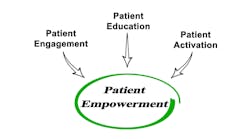Intermountain’s Precision Genomics Lab Begins Testing to Identify Hereditary Cancer Syndromes
Intermountain Healthcare has announced that its Precision Genomics Core Laboratory has begun to validate and launch several tests that will identify disease-causing genetic variants associated with hereditary cancer syndromes.
The Utah-based health system said that the development of hereditary cancer gene panels to be offered through the Intermountain Precision Genomics Core Laboratory, located in St. George, Utah. Intermountain Precision Genomics will soon move into the new stand-alone Intermountain Cancer Center of St. George, which is slated for completion this fall, officials said.
Intermountain officials noted a recent article in the Journal of Clinical Oncology (JOC), which revealed that there is an unmet need for genetic testing in women with a history of breast and ovarian cancer. The conclusion of the article “National Estimates of Genetic Testing in Women With a History of Breast or Ovarian Cancer” stated, “Fewer than one in five individuals with a history of breast cancer or ovarian cancer meeting specific National Comprehensive Cancer Network (NCCN) criteria have undergone genetic testing. Most have never discussed testing with a healthcare provider. Large national efforts are warranted to address this unmet need.”
Amber Guidry, Ph.D., Intermountain precision genomics scientist, has been working on validations for clinical genomics tests that will detect the presence of mutations in genes that are passed on from one generation to the next. Guidry stated, “The article in the JOC clearly provides data illustrating the need for increased awareness of hereditary cancer risk and lifesaving screenings to help reduce the risk of developing cancer.”
Much of the effort to identify, educate and test at-risk individuals is led by Intermountain Healthcare’s Cancer Genetic Counseling Service. According to Brent Hafen, who directs cancer genetic counseling for Intermountain, “Genetic testing may be used to identify individuals previously diagnosed with cancer as well as healthy individuals who have hereditary cancer gene mutations. Genetic counseling in association with genetic testing allows individuals with an increased cancer risk to obtain more frequent screenings at younger ages leading to earlier detection and treatment of many cancers.”

